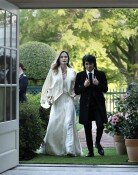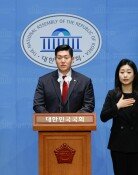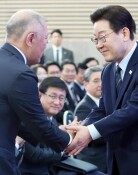[Opinion] Chinas Narrowmindedness
[Opinion] Chinas Narrowmindedness
Posted July. 31, 2007 03:02,
Dr. Park Gyeong-hui, in charge of Chinese editions at the Korea Literature Translation Institute (KLTI), had an absurd experience when she visited Chinas Renmin literature publishing company in Beijing earlier this year. Song of the Sword, written by Kim Hun, of which translation was commissioned for the Beijing Book Fair in August, was rejected for publication because the novel describes negatively the troops of the Ming Dynasty who joined the war during the Japanese Invasion of Korea in 1592. It was an about-face from the company that said, The novel realistically describes the story of how Korea defeated the Japanese with the help of China when it saw the novels Taiwanese Chinese version (published in 2005).
The novel was rejected because of the censorship of the Chinese communist party. In April, the KLTI also had the publishing of the novel Tears of Heroes by Jeon Sang-guk denied by Baekwa publishing company in Tianjin. It was because the novel, illustrating the Korean War, negatively depicted North Korea. The institute also failed to sign contracts with other publishing companies for the publishing of Samguk Yusa: Legends and History of the Three Kingdoms of Ancient Korea, of which Chinese translation has been completed. The Chinese publishing companies rejected the publication of the book, claiming out of the Three Kingdoms of Shilla, Baekje, and Goguryeo, that Goguryeo is not Korean history but Chinas.
What China says is wrong-headedness. Regarding the Japanese Invasion of Korea in 1592, which is the setting of Song of the Sword, the Ming Dynasty sent armies to the Joseon Dynasty not because it wanted to help Joseon but it was scared of possible attacks of Japan. Besides, the Ming troops were not willing or capable of fighting. Often, they wanted to withdraw their troops. The Book of Corrections by Yoo Seong-ryong, a scholar of the Joseon Dynasty, records, Jang Sejak, a Chinese general, kicked our official Lee Bin when we did not back off. The Annals of the Joseon Dynasty illustrate that the people of the dynasty were starved because they had to provide food for the Ming troops, who were goofing around.
It is such unexpected narrow-mindedness of China, having boasted of being a great country for a long time, for not allowing the publication of literature based on reality, following distortions of historical facts. Is it because the country has a socialist system? Danjae Shin Chae-ho said in his book Ancient History of Korea: Since the Confucius era, China has hidden things that it feels ashamed of. And that is the only fundamental principle that is respected by historians. He really had insight.
Heo Mun-myeong, Editorial Writer, angelhuh@donga.com







